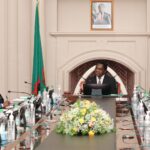Zambia, a country renowned for its breathtaking landscapes and rich cultural heritage, faces a grave threat to its tourism sector due to systemic police misconduct. What should be an enriching experience for visitors is often marred by harassment, extortion, and the mistreatment of tourists by members of the Zambia Police Service. This damaging behavior is tarnishing Zambia’s reputation and jeopardizing its standing as a premier tourist destination.
The heart of the issue lies in the country’s roadblocks, intended to ensure safety but often serving as points for extortion. Tourists, both local and international, frequently find themselves stopped at these checkpoints, where some police officers demand bribes or engage in unlawful detainment. One such incident occurred near Kazungula, where 17 tourists were detained for hours, harassed, and extorted before being released. This distressing experience left the tourists frustrated, humiliated, and vowing never to return—an attitude echoed by many others who have shared their negative experiences online.
Tourism plays a crucial role in Zambia’s economy, with projections estimating 2 million visitors in 2024, generating billions of kwacha in revenue. However, this growth is under threat due to police misconduct, which could potentially result in a loss of up to $250 million annually in tourism-related revenue. As Zambia’s reputation as a “friendly” and welcoming destination erodes, hotels, lodges, tour operators, and local artisans all face the repercussions of this behavior. The broader economic impact could be devastating, particularly as Zambia relies on foreign exchange earnings from tourism to maintain economic stability.
At the heart of the issue is a culture of impunity within the Zambia Police Service. Those involved in extortion are rarely held accountable, and complaints often go unanswered. The lack of accessible and effective mechanisms for reporting police misconduct further enables this situation to persist. In many cases, officers deliberately conceal their service numbers, making it nearly impossible for tourists to identify wrongdoers and lodge formal complaints.
The damage to Zambia’s tourism reputation extends beyond the nation’s borders. Social media has amplified the stories of mistreatment, deterring potential visitors who may now view Zambia as a country where tourists are vulnerable to corruption. This is especially problematic given the competition from neighboring countries such as Botswana, Zimbabwe, and Kenya, which have made concerted efforts to position themselves as tourist-friendly destinations.
The Tourism Council of Zambia, led by Chairman Yusuf Zumla, has advocated for several reforms to address this issue, including:
- Mandatory Police Training: Sensitizing officers on the economic importance of tourism, customer service, and human rights.
- Tourism Police Units: Establishing specialized teams trained to handle tourist-related issues.
- Accountability Mechanisms: Creating transparent and accessible systems for tourists to report misconduct.
- Reduction of Roadblocks: Limiting checkpoints to strategic locations and ensuring they serve genuine safety purposes.
Despite these recommendations, progress has been slow. Meetings with the Ministry of Home Affairs and other stakeholders have failed to yield meaningful action, with the government’s response largely limited to promises rather than concrete steps.
Zambia’s tourism industry is at a critical juncture. The failure to address police misconduct will not only hurt the country’s reputation but also put its economic prospects at risk. The government must act swiftly and decisively to implement the reforms needed to restore Zambia’s position as one of Africa’s top tourist destinations. Anything less would be a betrayal of the nation’s potential.
Until meaningful change occurs, tourists will continue to face harassment, and Zambia’s reputation will continue to suffer. The time for excuses is over—bold, immediate action is required to safeguard Zambia’s future as a premier tourist destination.






